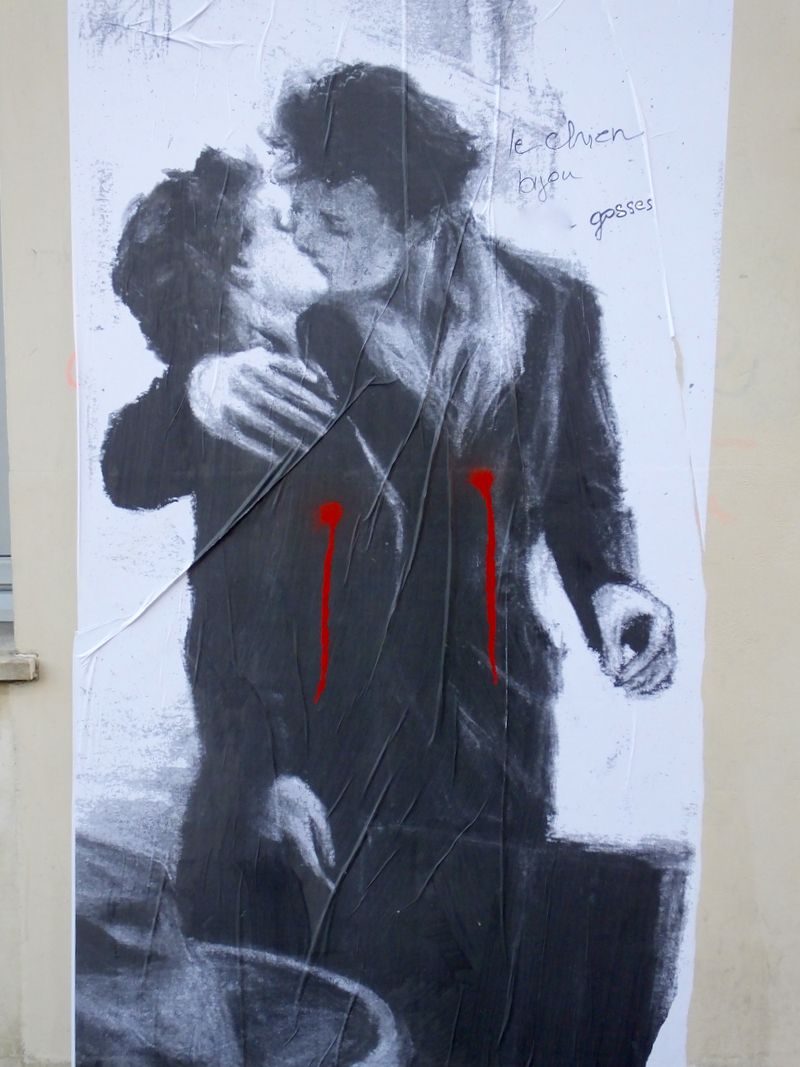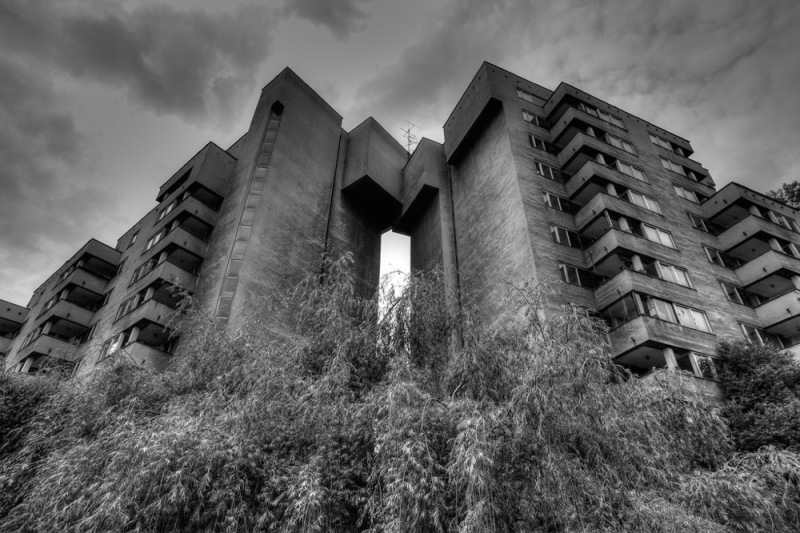
A mural beside Le Carillon depicts Robert Doisneau’s famous couple with bullet wounds.
At Paris’ five-star L’hôtel The Peninsula, a luxe Mongolian-style yurt currently occupies its sprawling Terrasse Kléber. Guests are invited to drink hot chocolate and nosh on tartines while lounging amid mattresses and fur throw rugs strewn beneath a chandelier made of antlers. On the garden patio of the equally swanky Hôtel du Collectionneur in the neighboring 8th Arrondissement, patrons can sip champagne and nibble canapés inside a large, transparent bubble festooned with elegant floral designs.
I can’t help but think that the yurt and the bubble signify something beyond the novelties of snacking in a rustic-chic tent and getting tipsy in an upmarket snow globe. A year after terrorist attacks on the offices of the satirical magazine Charlie Hebdo and a kosher supermarket killed 17, and less than two months after gunmen murdered 130 others on Nov. 13, these whimsical, cozy spaces seem to embody a collective desire to find refuge from the bad memories of a 2015 that a recent Agence France-Presse headline dubbed an “année de merde,” or,”a shit year.”
This past Wednesday, Charlie Hebdo released a special anniversary edition. The cover depicts an image of a God with splotches of blood on his robes and a Kalashnikov strapped to his back. Beneath the cartoon is the headline, “A year later the murderer is still on the loose” — another of the magazine’s signature jabs at religion. The first page contains a disturbing blow-by-blow account of what happened at the magazine’s editorial offices on Jan. 7, 2015, when the fanatical Kouachi brothers gunned down 12 people, including eight staff members.
“It was unthinkable that in 21st-century France journalists would be killed by religion,” cartoonist Laurent “Riss” Sourisseau writes in the magazine’s editorial. He continues: “We saw France as an island of secularism, where it was possible to tell jokes, draw, laugh, without worrying about dogma or fanatics.”
Read more at Bustle.

